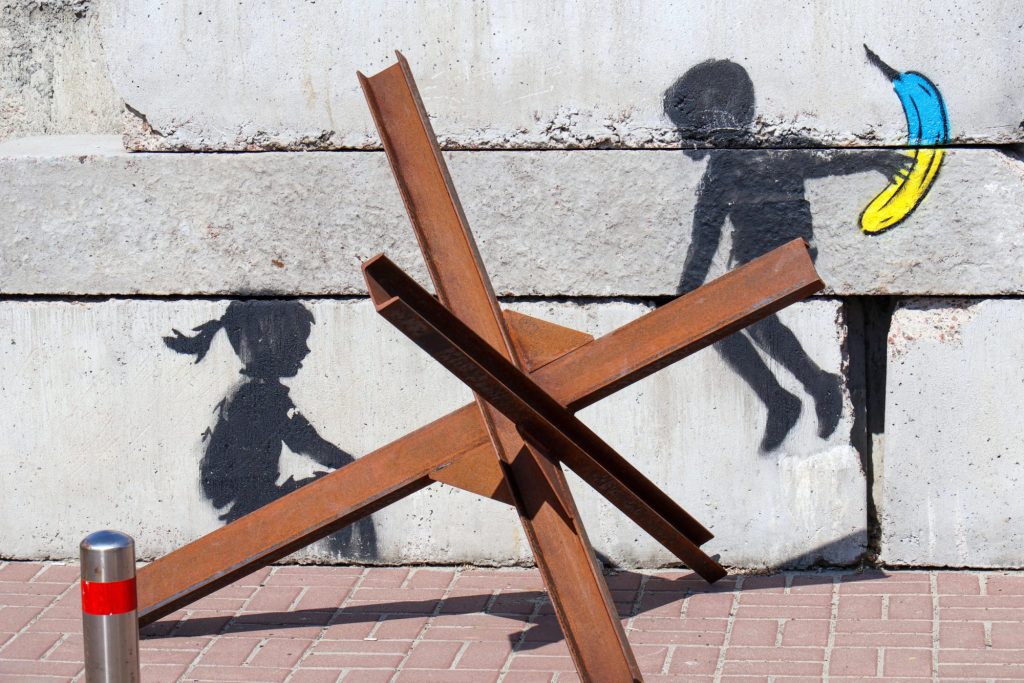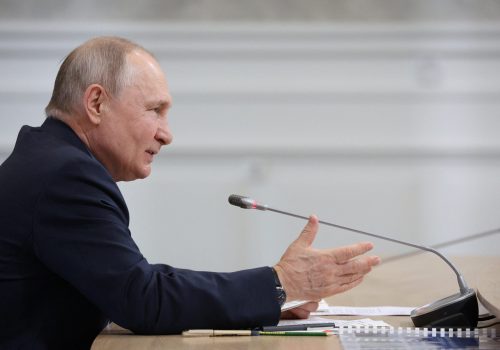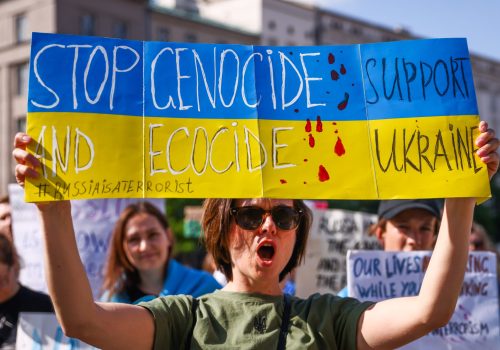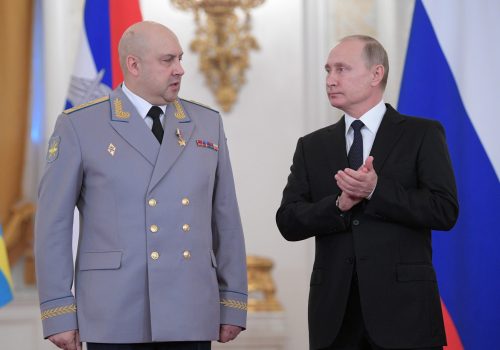There is currently no end in sight to the Russian invasion of Ukraine, but the debate over Ukraine’s postwar reconstruction is already well underway and continues to gain momentum. Attention is focused primarily on the challenge of physically rebuilding the country’s shattered infrastructure, with war damage currently estimated at over $400 billion. At the same time, it will also be vital to repair and strengthen the central pillars of Ukraine’s democracy.
Many of Ukraine’s public and private sector institutions have performed remarkably well since the start of Russia’s full-scale invasion. Despite facing the largest war seen in Europe since 1945, the Ukrainian state did not collapse, contrary to the expectations of Russian President Vladimir Putin and many others. Indeed, one recent nationwide poll found that most state institutions have approval ratings of over 50 percent.
This remarkable resilience cannot completely disguise the damage done to many of the institutions that are critical to Ukraine’s democracy. Political parties, local government, civil society, and the media will all likely emerge from the current war in a significantly weakened state. Addressing this issue will be critical for Ukraine’s further Euro-Atlantic integration.
Stay updated
As the world watches the Russian invasion of Ukraine unfold, UkraineAlert delivers the best Atlantic Council expert insight and analysis on Ukraine twice a week directly to your inbox.
Ukrainian civil society, which powered the country’s democratic progress throughout the first three decades of independence, has been hard-hit by the war. Around a third of Ukrainian civil society organizations (CSOs) paused their operations or completely shut down following Russia’s invasion, according to a nationwide CSO survey. Meanwhile, three-quarters of organizations that did continue operating refocused away from their usual fields and switched to humanitarian and defense initiatives. Around 80% of CSOs say they will need new skills to effectively participate in Ukraine’s reconstruction.
The suspension of politics-as-usual during wartime could also have a negative impact on the democratic system in post-war Ukraine. With many political parties in disarray and nationwide networks disrupted as a result of the invasion, it will likely take some time before the country’s political climate can regain the structure and competitiveness of the prewar years. The relationship between parliament and the presidency will also need to be revised. This must include a reappraisal of wartime measures which have handed some powers from parliament to the executive.
Similar challenges face Ukraine’s independent media, which will have a crucial role to play as the forum for much-needed public debate about the country’s reconstruction. As a mandatory wartime measure, most of Ukraine’s major TV channels have ceased independent broadcasting and joined the government-run “United News” platform. During the postwar period, these channels will need to undergo the time-consuming work of reintegrating journalists, training new reporters, and adapting their brands to the new realities in the country.
In postwar Ukraine, local government authorities across the country will need to reclaim some of the powers devolved to central authorities on national security grounds in the wake of the Russian invasion. Centralization is an especially acute issue in front line municipalities, where reconstruction is most urgent. Although local governments have generally performed well during the war, they will need to have the necessary authority to lead rebuilding efforts. It will be even more difficult to restore local governance in areas currently occupied by Russia. With Russian occupation forces systematically murdering, imprisoning, or deporting local Ukrainian officials, there will be major personnel challenges to face.
Eurasia Center events

Despite the horrors of the Russian invasion, there is every reason to believe that the key pillars of Ukraine’s democracy can emerge stronger than ever in the postwar period. Throughout more than three decades of independence, Ukrainians have repeatedly demonstrated their readiness to fight tenaciously for a democratic future. Milestones like the 2004 Orange Revolution and 2014 Euromaidan Revolution stand out as symbols of this commitment to building a modern democratic state. In 2014, Ukraine’s democracy survived the initial shocks of Russian aggression with the invasion of Crimea and eastern Ukraine; the country’s democratic foundations have likewise remained intact since the full-scale invasion of February 2022.
Ukraine’s international partners will have a critical role to play in safeguarding the country’s postwar revival and the consolidation of Ukrainian democracy. Many of Western non-governmental organizations that will be at the forefront of these efforts have already been supporting the development of Ukrainian party politics, local government, civil society, and an independent media for many years.
All of these elements will be vital in the coming years as Ukraine looks to advance toward accession to the European Union. Ukraine secured official EU candidate nation status in summer 2022; it will be important to demonstrate the necessary institutional capacity if Ukraine is to meet the EU’s stringent accession criteria.
Rebuilding Ukraine brick-by-brick will be a Herculean task, but it may not be the biggest challenge facing the country once the war is over. Even with sufficient investment and creativity, the physical reconstruction of towns and cities will not be enough to secure the kind of European future Ukrainians are fighting for. This can only be achieved by focusing on the institutions underpinning Ukrainian democracy.
Oleksii Antoniuk is a global affairs and economics student at Yale University, born and raised in Ukraine. He currently interns at the International Republican Institute. Find him on Twitter at @OleksiiAntoniuk.
Further reading
The views expressed in UkraineAlert are solely those of the authors and do not necessarily reflect the views of the Atlantic Council, its staff, or its supporters.

The Eurasia Center’s mission is to enhance transatlantic cooperation in promoting stability, democratic values and prosperity in Eurasia, from Eastern Europe and Turkey in the West to the Caucasus, Russia and Central Asia in the East.
Follow us on social media
and support our work
Image: Mural by British street artist Banksy transforms an anti-tank obstacle on Maidan Nezalezhnosti into a seesaw for a boy and a girl. Photo by (Pavlo Bahmut/Ukrinform/ABACAPRESS.COM)




